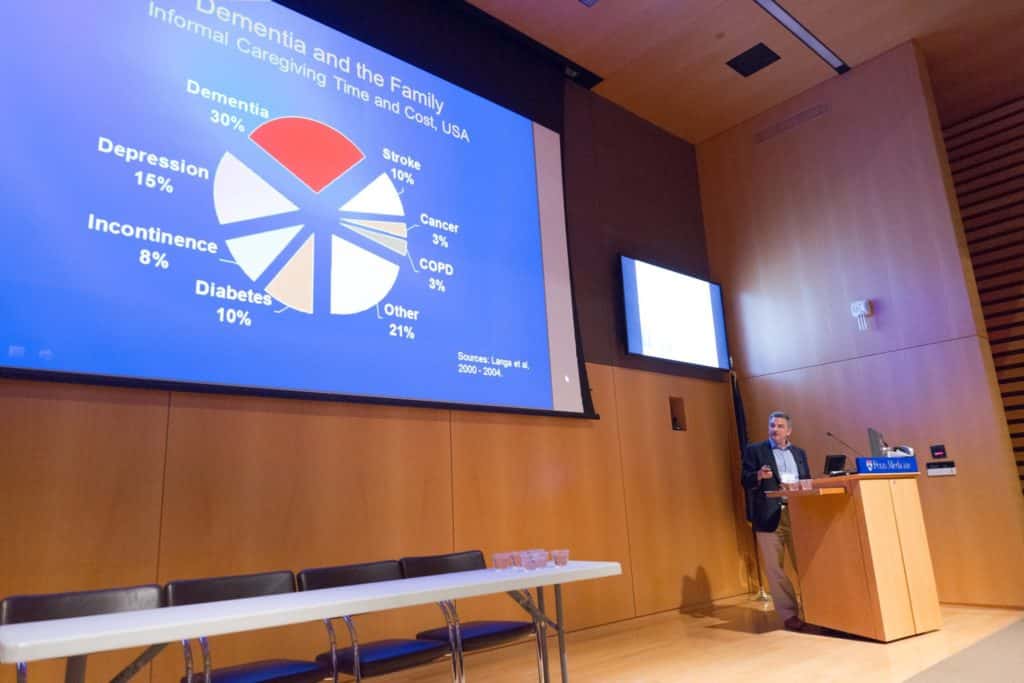Is the risk for Alzheimer’s disease and dementia declining? Kenneth Langa, MD, PhD addressed this question using epidemiological evidence from around the world during a recent keynote presentation at a conference held by the University of Pennsylvania’s Institute on Aging (IOA).
Dr. Langa, Professor in the Department of Internal Medicine and Health Management and Policy in the School of Public Health at University of Michigan, spoke about recent trends in brain health and dementia prevalence within the United States and around the world.
During the presentation, Dr. Langa referenced data collected from the Health and Retirement Study (HRS) between the years 2000 and 2012. Despite the prevalence of diabetes, heart disease, hypertension and obesity increasing, findings showed a significant decrease in dementia in ages 65 and older, with the most drastic being in ages 85 and older.
Dr. Langa partly attributes this trend to the rapid increase in levels of education, which is protective against Alzheimer’s disease. In 1990, 53 percent of people over 65 finished high school, while by 2010, that number increased to 80 percent. Similarly, in 1990 only 11 percent of people age 65 and older finished college, with that number growing to 23 percent by 2010, Dr. Langa said.
This event held by the IOA was the 2018 Sylvan M. Cohen Annual Retreat and Poster Session in partnership with Penn’s Population Aging Research Center (PARC). Dr. Langa’s presentation followed the theme of this year’s event, “Impact of Life Course Exposures on Aging: Longevity reflects our experiences from day to day.” To learn more about Dr. Langa’s research or see full lectures from the conference, click here.
